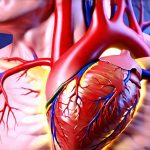Reflux, often experienced as heartburn, is a common condition affecting millions globally. But when reflux goes hand-in-hand with nausea, it moves beyond simple discomfort and can significantly disrupt daily life. It’s not just the burning sensation in your chest; it’s the unsettling feeling of sickness that can make even the thought of food triggering anxiety. Understanding why these two symptoms occur together, what exacerbates them, and how to manage them effectively is crucial for regaining control and improving your overall wellbeing. Many people assume reflux only causes a burning sensation, but nausea frequently accompanies it due to the complex interplay between the digestive system, the vagus nerve, and even psychological factors related to anticipating discomfort.
The connection between reflux and nausea isn’t always straightforward. Often, the regurgitation of stomach acid into the esophagus irritates sensitive nerves, sending signals to the brain that are interpreted as nausea. However, it can also be a consequence of delayed gastric emptying – when food stays in your stomach for too long, increasing pressure and the likelihood of reflux. Furthermore, some individuals develop conditioned nausea; meaning they associate certain foods or situations with reflux symptoms and experience nausea even before the reflux occurs. Identifying the specific triggers and mechanisms behind your individual experience is key to developing a personalized management strategy. This article aims to provide comprehensive insights into handling these combined symptoms, offering practical strategies for relief and improved quality of life. If you’re struggling to pinpoint causes, consider how doctors investigate gut symptoms that don’t match tests.
Understanding the Reflux-Nausea Connection
The underlying cause of gastroesophageal reflux disease (GERD), the chronic form of reflux, often involves a malfunctioning lower esophageal sphincter (LES). The LES acts as a valve between the esophagus and stomach. When it weakens or relaxes inappropriately, stomach acid can flow back up – this is reflux. Nausea frequently arises from several interconnected factors when combined with reflux. First, the acidic content irritating the esophagus stimulates the vagus nerve, which plays a significant role in regulating digestive processes and communicates directly with the brain’s vomiting center. This stimulation can trigger feelings of nausea even without actual vomiting occurring. Second, the sheer volume of acid reaching the esophagus can cause inflammation and discomfort, contributing to the nauseous sensation. Finally, persistent reflux can lead to gastroparesis – a condition where the stomach empties too slowly – further increasing pressure and promoting both reflux and nausea.
Beyond the physiological aspects, psychological factors play an important role. Anxiety surrounding potential reflux episodes can actually exacerbate symptoms, creating a vicious cycle where fear of nausea leads to increased nausea. This is known as anticipatory nausea. Similarly, stress significantly impacts digestive function. When stressed, our bodies often prioritize immediate survival mechanisms over optimal digestion, leading to slower gastric emptying and increased acid production. Therefore, managing stress levels is an integral part of handling reflux-related nausea. It’s also important to recognize that certain foods can trigger both reflux and nausea – these vary from person to person but commonly include fatty or fried foods, caffeine, alcohol, chocolate, and spicy dishes.
Reflux doesn’t always present as a typical burning sensation; some individuals experience ‘silent reflux’, where the primary symptom is chronic cough, hoarseness, or even just a feeling of something being stuck in the throat – all of which can contribute to feelings of unease and nausea. Recognizing these atypical symptoms is vital for accurate self-assessment and seeking appropriate support. The interplay between these factors highlights why a holistic approach, addressing both physical and emotional wellbeing, is essential when managing reflux-induced nausea. If you’re unsure how mild symptoms can lead to early-stage testing, don’t hesitate to seek advice.
Lifestyle Adjustments & Dietary Changes
Making strategic lifestyle adjustments can dramatically reduce the frequency and severity of both reflux and accompanying nausea. One of the most effective strategies is elevating the head of your bed by 6-8 inches. This utilizes gravity to help keep stomach acid where it belongs, minimizing nighttime reflux which is often more pronounced when lying flat. Avoid eating large meals, especially before bedtime. Instead, opt for smaller, more frequent meals throughout the day. This reduces the pressure on the LES and allows for easier digestion. Furthermore, pay attention to your posture – slouching can compress the abdomen and worsen reflux symptoms.
Dietary changes are paramount. Identifying and eliminating trigger foods is a crucial step. Keep a food diary to track what you eat and when symptoms occur, helping you pinpoint personal sensitivities. Generally, reducing consumption of: – Fatty and fried foods – Caffeine (coffee, tea, soda) – Alcohol – Chocolate – Spicy foods – Acidic foods (citrus fruits, tomatoes) can significantly alleviate symptoms. Focus on incorporating easily digestible foods like bland rice, bananas, applesauce, toast (the BRAT diet) when experiencing nausea. Staying well-hydrated is also important, but avoid drinking large amounts of fluid during meals as this can exacerbate reflux. Chewing gum after meals may help neutralize stomach acid for some individuals, but it’s not a universal solution and should be tested individually.
It’s also vital to consider the timing of your meals. Allow at least 2-3 hours between your last meal and bedtime. Avoid lying down immediately after eating. Consider incorporating ginger into your diet – it has long been known for its anti-nausea properties, though the research is still evolving. Ginger can be consumed as tea, candies, or even grated into food. Finally, remember that weight management plays a role; excess weight puts increased pressure on the abdomen and LES, increasing the risk of reflux. If you find it difficult to discuss these issues, learn how to talk to your doctor about acid reflux symptoms.
Managing Acute Nausea Episodes
When nausea strikes alongside reflux, quick relief strategies are essential. One effective method is to practice deep, slow breathing exercises. This can help calm the vagus nerve and reduce feelings of sickness. Focus on inhaling deeply through your nose, holding for a few seconds, and exhaling slowly through your mouth. Another technique is sipping small amounts of clear fluids – water, broth, or herbal tea (ginger or peppermint) are good options. Avoid sugary drinks as they can sometimes worsen nausea.
- Distraction can also be surprisingly effective. Engaging in a calming activity like reading, listening to music, or watching a lighthearted show can shift your focus away from the nauseous sensation.
- Applying a cool compress to your forehead or back of your neck may provide some relief.
- Over-the-counter remedies such as bismuth subsalicylate (Pepto-Bismol) or dimenhydrinate (Dramamine) may offer temporary relief, but should be used cautiously and according to package directions; these are not long-term solutions and can have side effects.
Avoid strong smells which often trigger nausea. If possible, step outside for fresh air. Sometimes a change of scenery can make a significant difference. Remember that the goal during an acute episode is to manage symptoms until they subside, rather than attempting to completely eliminate them immediately. It’s important not to force yourself to eat if you are actively nauseous; focus on staying hydrated and resting instead. If your symptoms defy diagnosis, remember there are resources available: how to coexist with symptoms.
The Role of Stress Management
Chronic stress profoundly impacts digestive health, exacerbating both reflux and nausea. Stress triggers the release of cortisol, a hormone that can increase stomach acid production and disrupt normal digestive processes. It also affects the vagus nerve, increasing its sensitivity and making you more susceptible to nausea. Implementing effective stress management techniques is therefore crucial for long-term relief.
- Practicing mindfulness meditation – even just 10-15 minutes per day – can significantly reduce stress levels.
- Regular exercise releases endorphins which have mood-boosting effects. Choose an activity you enjoy, whether it’s walking, yoga, swimming, or dancing.
- Deep breathing exercises (as mentioned earlier) are also effective for calming the nervous system during moments of acute stress.
- Consider incorporating relaxation techniques like progressive muscle relaxation or guided imagery into your routine.
If stress is overwhelming and interfering with your daily life, seeking support from a therapist or counselor can be incredibly beneficial. Cognitive Behavioral Therapy (CBT) specifically addresses thought patterns that contribute to anxiety and stress, providing tools for managing challenging situations. Remember that prioritizing self-care isn’t selfish; it’s essential for maintaining both physical and mental wellbeing. Sometimes understanding gut symptoms that don’t match tests can also reduce stress and anxiety.
When to Seek Professional Help
While many cases of reflux-induced nausea can be managed with lifestyle adjustments and over-the-counter remedies, certain symptoms warrant professional medical attention. If your nausea is severe, persistent, or accompanied by other concerning symptoms such as: – Vomiting blood – Difficulty swallowing – Unintentional weight loss – Chest pain that radiates to the arm or jaw – Black, tarry stools
it’s crucial to consult a doctor immediately. These could indicate a more serious underlying condition. Furthermore, if over-the-counter medications are not providing adequate relief, or if your symptoms are significantly impacting your quality of life, it’s time to seek medical evaluation. A healthcare professional can perform diagnostic tests to determine the underlying cause of your reflux and nausea, and recommend appropriate treatment options which might include prescription medications like proton pump inhibitors (PPIs) or H2 receptor antagonists. Remember that self-diagnosis is never advisable, and seeking timely medical attention is essential for ensuring optimal health outcomes. If you are unsure how to tell if your symptoms need further testing, consult a doctor promptly.


















